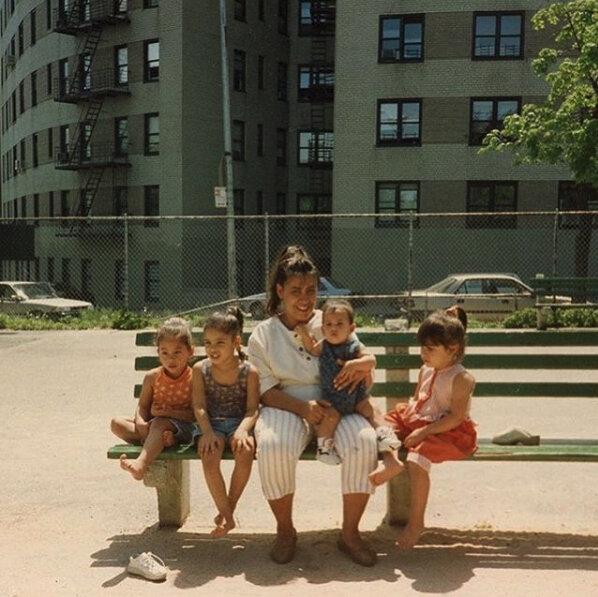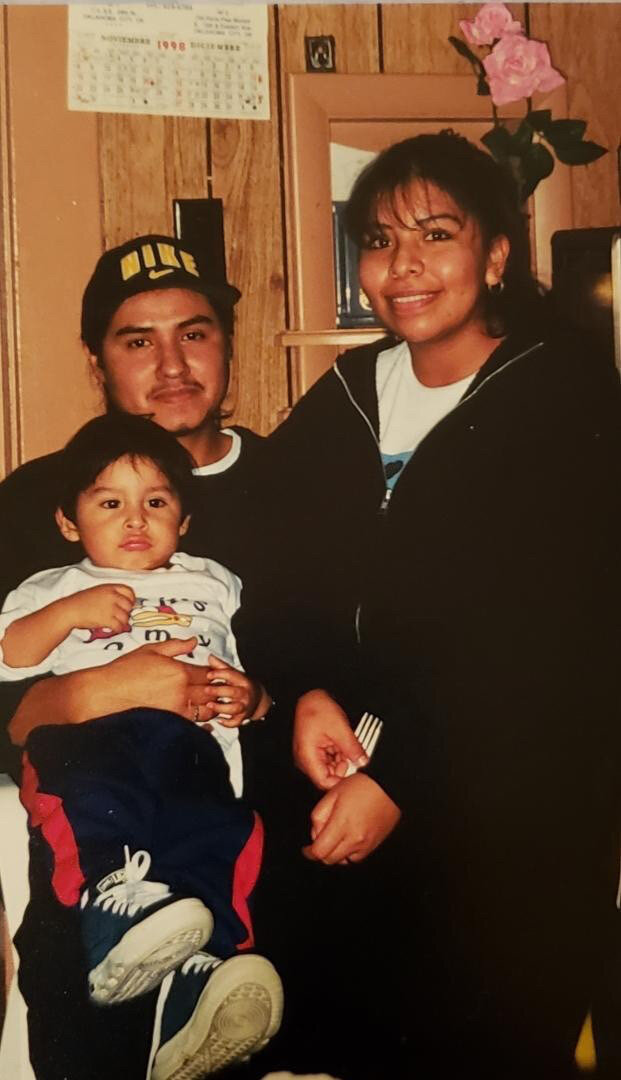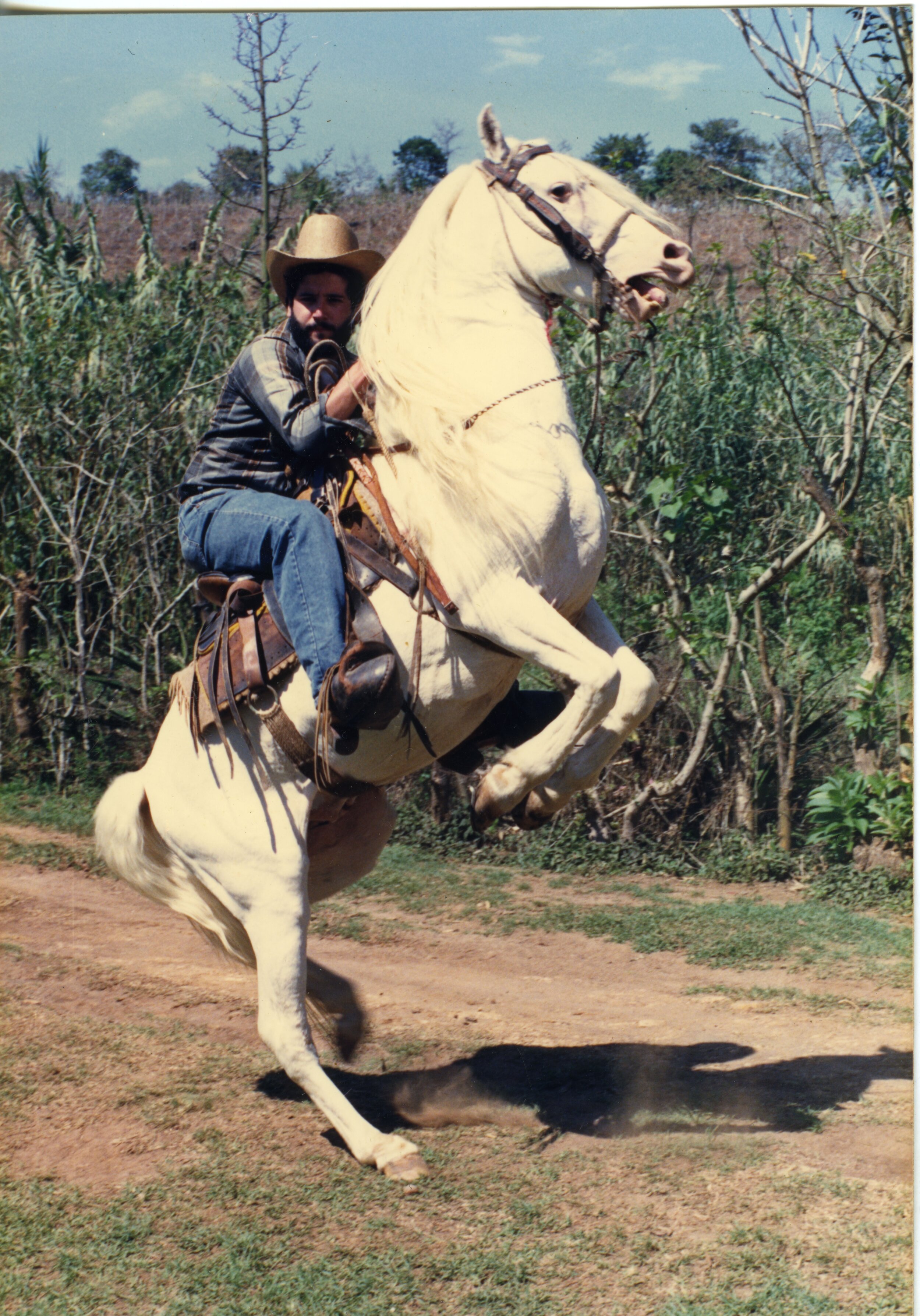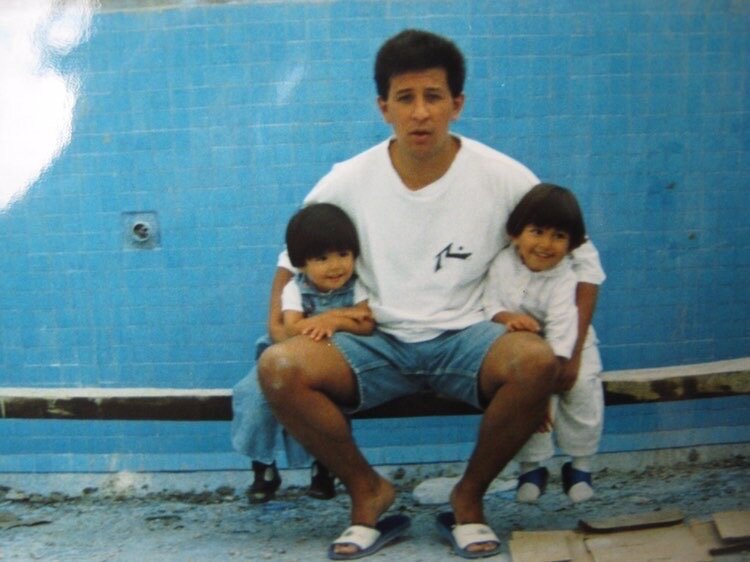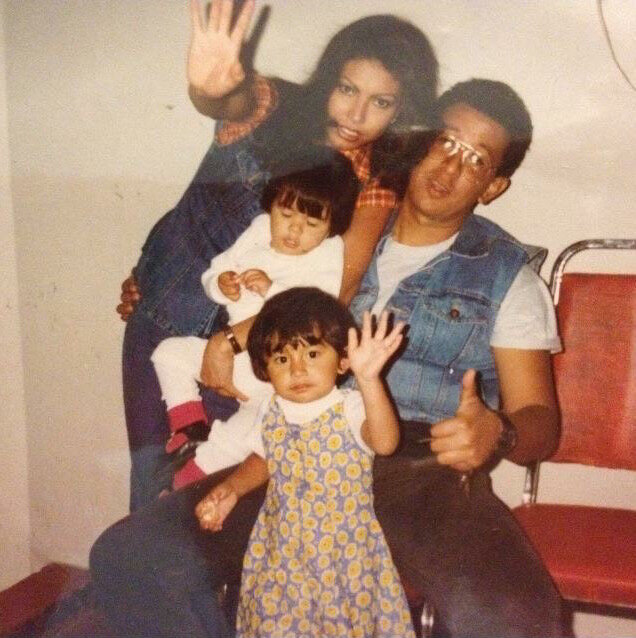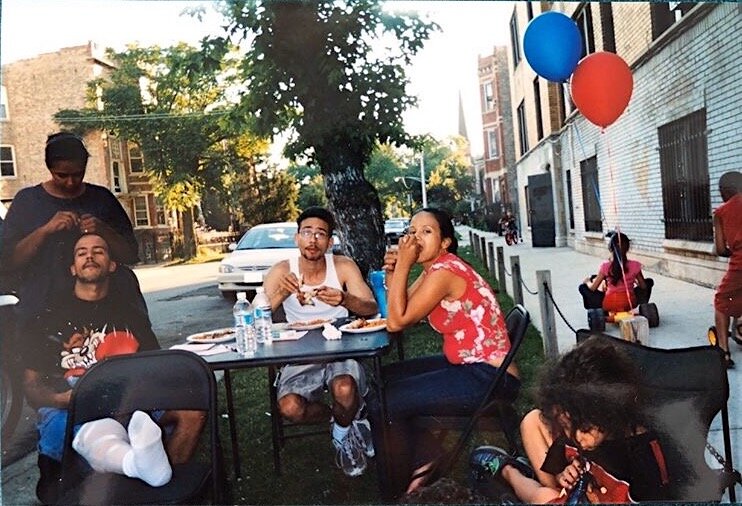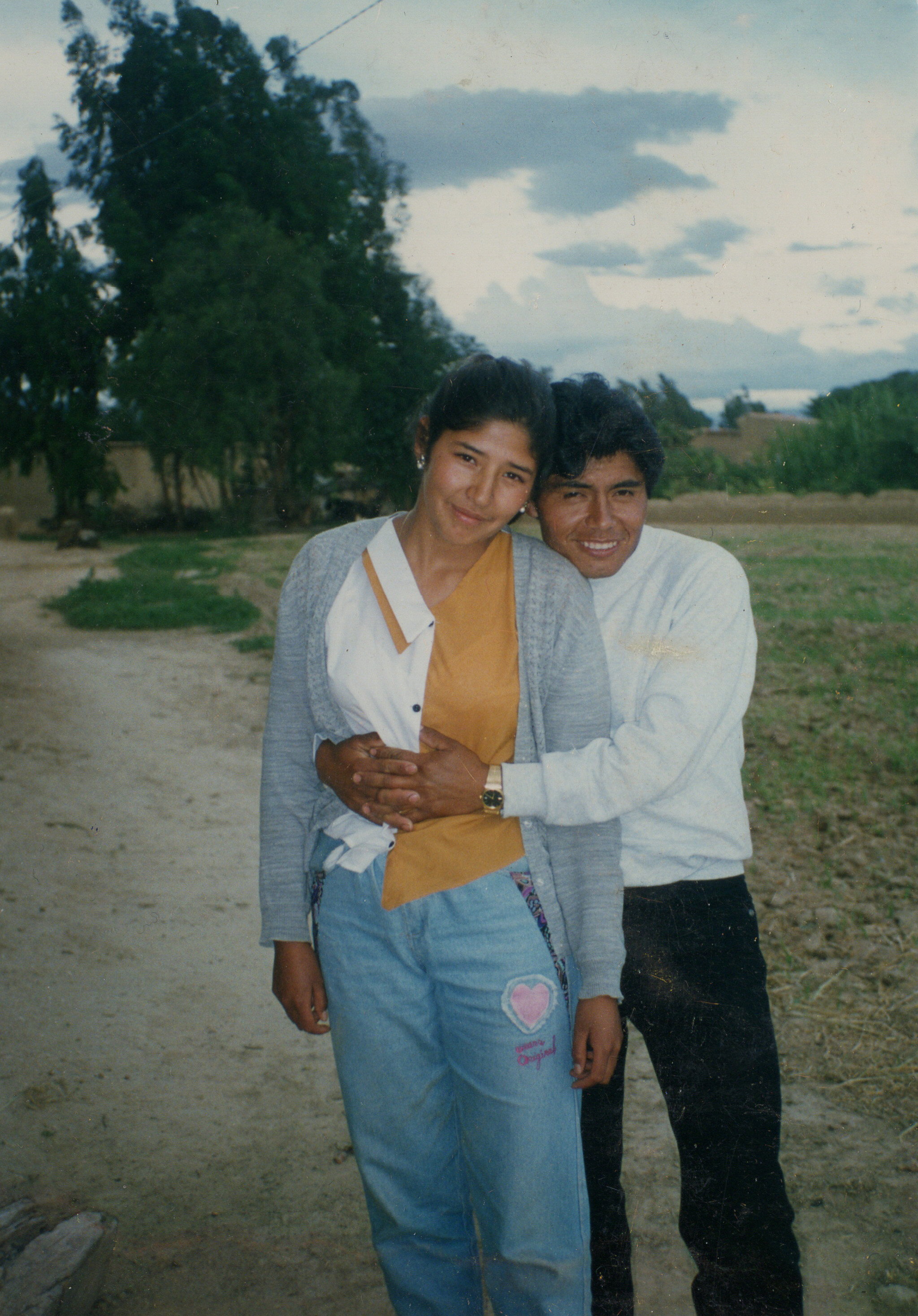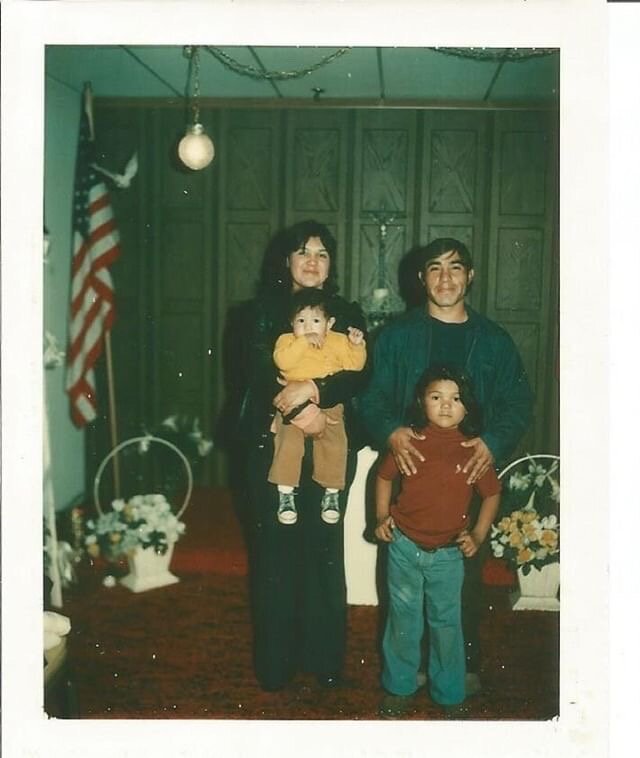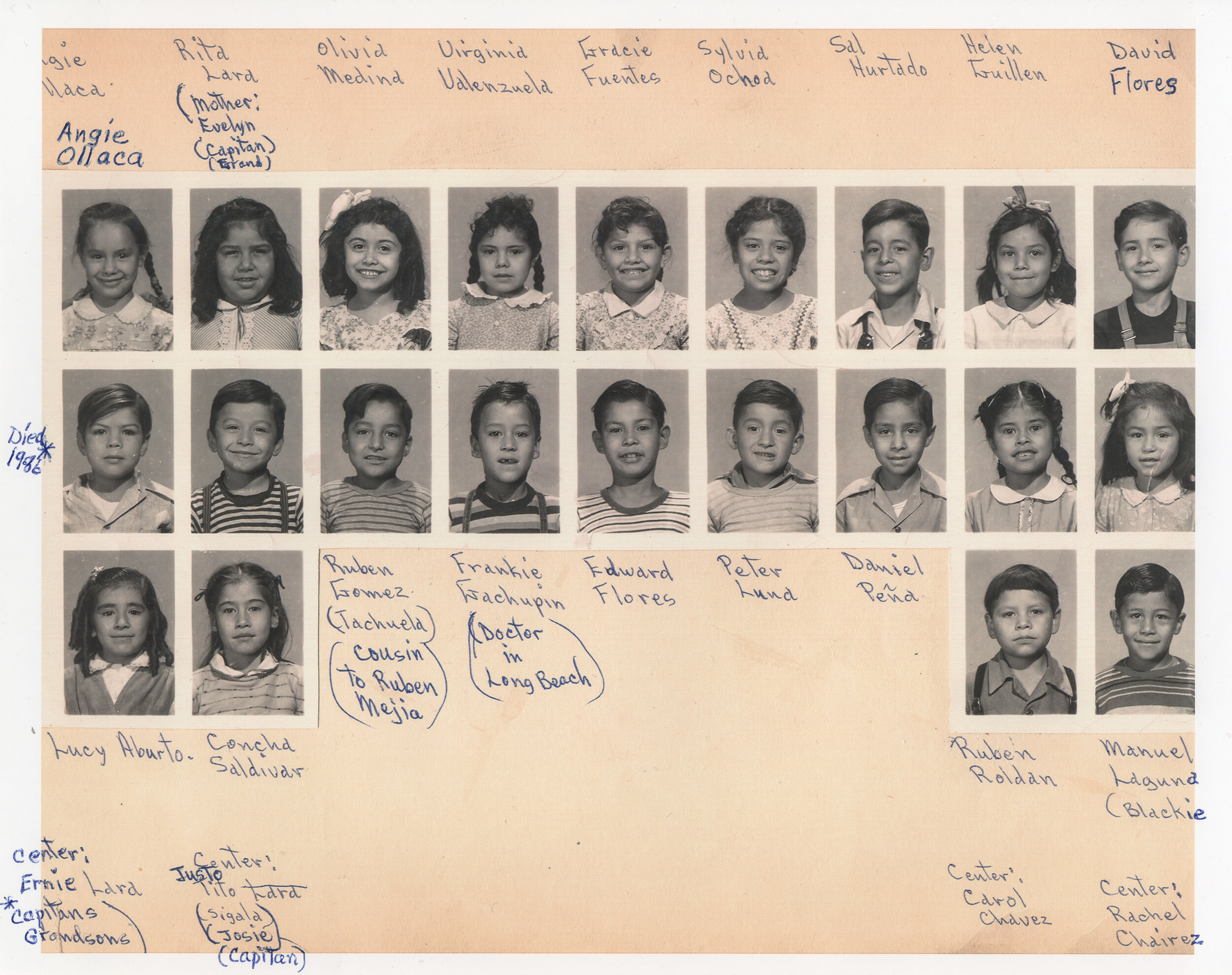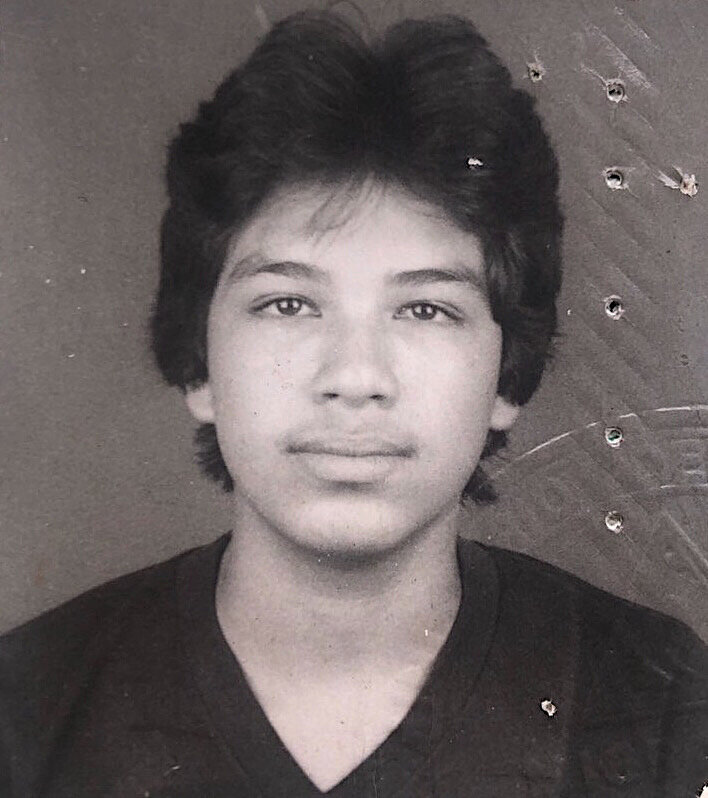@Latinx_Diaspora_Archives: Family Photographs as Counter-Narratives of the Latinx Diaspora
submitted to Latinx Diaspora Archives by Adeline Lulo of her and her family in the Bronx, NY in 1993. Her parents migrated from the Dominican Republic and they continue to live in the Bronx.
@Latinx_Diaspora_Archives: Family Photographs as Counter-Narratives of the Latinx Diaspora
by William Camargo
The Instagram account I created, @latinx_diaspora_archives, is an attempt to elevate communities of color, those specifically of the Latinx diaspora. In Bell Hooks Art on My Mind, she states
"The camera must have seemed a magical instrument to many of the displaced and marginalized groups, trying to carve out new destinies for themselves in the Americas."
As my family migrated and many others from the Diaspora did too, the camera was a way to document this broken American Dream narrative, instead, we needed to create a counter-narrative of our people, because we are not seen as American.
"Archives stake a claim to a history that is always contested and that many artist and scholars and activist have challenged by creating counter archives that make visible alternative historical agents and narratives"
-Shawn Michelle Smith, Photographic Returns, Racial Justice and the Time of Photography
Latinx Diaspora Archives is also an attempt to question the institution of the archive: Who holds the majority of archives of black folks? Of queer folks? Of Latinx communities and other marginalized groups? Who has access to them? How are they displayed? Photographs of communities of colors have told many stories, but they have also been the death of Black and Brown people. In cases of police violence what we see in the T.V are blatant acts of criminalization towards Black and Brown people, yet if you walk into those households we come to terms that their family archives tell another story, of joy, of cookouts, of birthdays, of quinces and momentous parts of people's life.
Coming from a low-income background, an attempt to look at the archives posed difficulties, the resources and access were not there. Latinx Diaspora Archives aims to center family photos of the Latinx Diaspora through the Instagram account in order to combat erasure throughout the U.S. and the Americas. Many Instagram accounts that have been created over the last several years such as @atx_barrio_archive, @veteranas_and_rucas, @faderesistance @archivotrans challenge hegemonic and hierarchical systems that have been set up by institutions.
I have openly discussed that I myself am a non-traditional archivist. The ownership of each family photograph that I receive remains with the family and is returned to the owner(s) unless gifted to me. It is an attempt to give a voice to the narratives of the community. In Jose Esteban Munoz's Ephemera as Evidence: Introductory Notes to Queer Acts, he points to who is left out of the archive in the traditional sense: queer, communities of color, and other marginal communities. The increase of Instagram accounts lets us into these ephemeral moments in these communities, through the eyes of those that experienced them. We have seen when holders of archives and photographers, who either photograph or distribute photographic archives, further push negative stereotypes about our communities.
This project is an attempt to elevate our communities and show our realities, through our own experiences, and through the radical archives we are a part of.
William Camargo is an Arts Educator, Photo-Based Artist and Arts Advocate born and raised in Anaheim, California, he is currently serving as Commissioner of Heritage and Culture in the city of Anaheim and working towards an M.F.A at Claremont Graduate University. He is the founder and curator of Latinx Diaspora Archives, an archive Instagram page that elevates communities of color through family photos. He attained his BFA at the California State University, Fullerton, and an AA from Fullerton College in photography.
William has held residencies at Project Art, the Chicago Artist Coalition, ACRE, and at LA Summer held at Otis School of Art and Design. He has also participated in the New York Times Portfolio Review, NALAC's Leadership(2018), and Advocacy(2020) Institutes. He is a current member of Diversify Photo an initiative started to diversify the photography industry. He was awarded the Friedman Grant from CGU and has given lectures at the University of Wisconsin-Parkside, Gallery 400(Chicago), University of San Diego, Cal State Long Beach, the Claremont Colleges, USC Roski School of Art, among others.
Additionally, his work has been shown at the Chicago Cultural Center, Loisaida Center(New York), the University of Indianapolis(IN), Mexican Cultural Center and Cinematic Arts(Los Angeles), Stevenson University(Baltimore), The Cooper Gallery of African and African American Arts at Harvard, Irvine Fine Arts Center, and upcoming at the Phoenix Art Museum and Salz Pollak Atrium Gallery located at Cal State Fullerton.

